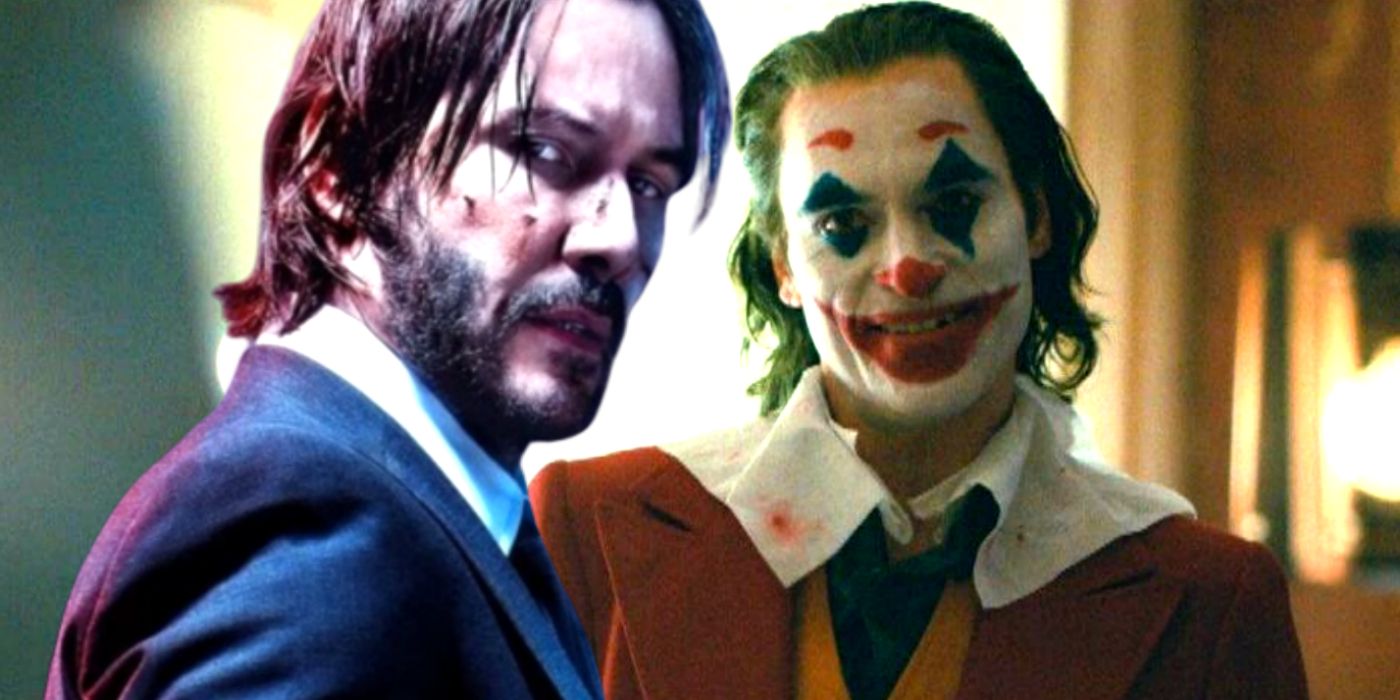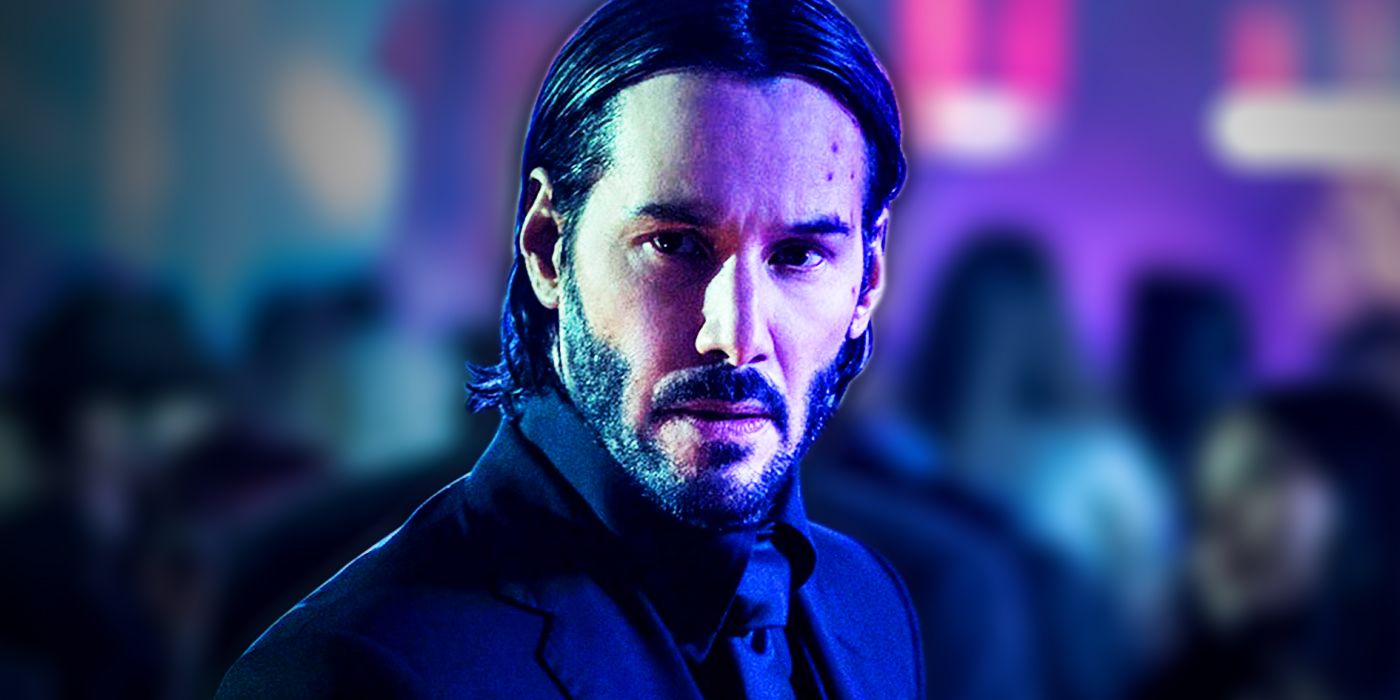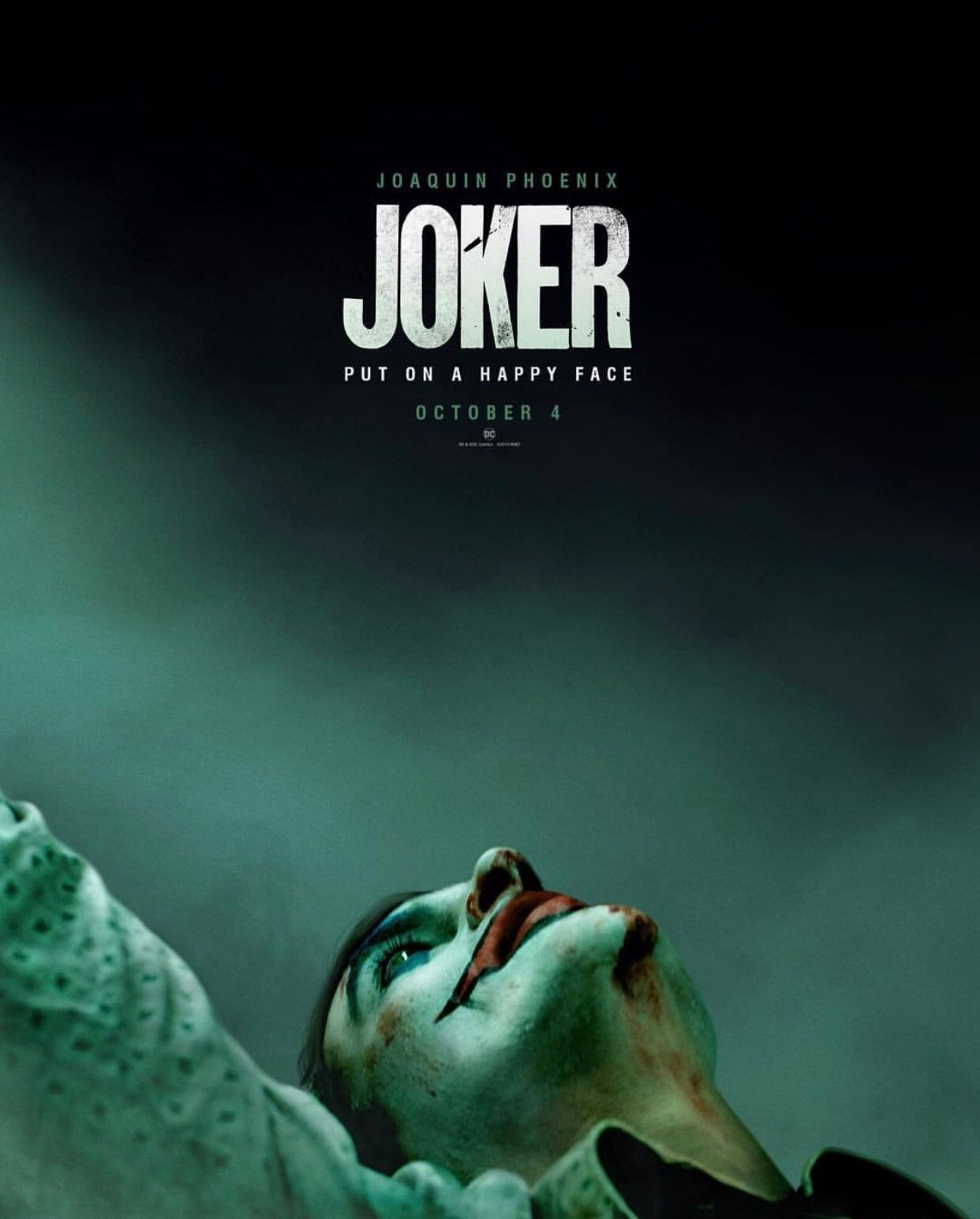Joker director Todd Phillips tried to defend his controversial film by comparing it to John Wick, but that misses the point of the movie's criticisms entirely, especially when other comparisons are far more apt. Warner Bros. and DC’s Joker hasn’t even been released in American theaters yet and it’s already drumming up all manner of drama. After an unexpectedly successful festival run, where Joker won the Golden Lion at Venice Film Festival, the film has faced a backlash for its use of violence and how it could inspire others.
The families of the victims from the 2012 mass shooting in Aurora, Colorado, have already spoken out against the film, while the U.S. Army confirmed they have warned service members about the potential for a mass shooter at Joker screenings. Subsequently, both Phoenix and Phillips have defended the film in various interviews, and many of their responses have been eloquent and fair. However, one defense of Joker raised more than a few eyebrows, as Phillips cited the John Wick franchise as an example of films with much more violence than Joker that received none of the backlash or calls of concern that his movie did:
“The movie [Joker] still takes place in a fictional world. It can have real-world implications, opinions, but it’s a fictional character in a fictional world that’s been around for 80 years. The one that bugs me more is the toxic white male thing when you go, ‘Oh, I just saw “John Wick 3.”‘ He’s a white male who kills 300 people and everybody’s laughing and hooting and hollering. Why does this movie get held to different standards? It honestly doesn’t make sense to me."
Putting aside for a moment the fact that Keanu Reeves is not white and explicitly identifies as Asian-American, Phillips’s comparison between John Wick and Joker doesn’t hold up to scrutiny.
Why Joker Can’t Be Compared to John Wick
In the space of only five years, the John Wick franchise has become one of the most beloved and critically acclaimed original action franchises of the decade. The three films have earned close to $600 million worldwide and helped to revive the career and public image of Keanu Reeves. What makes the franchise different from your typical lone assassin revenge movie is the strangely tangled mythology and the overwhelming commitment to brutal stylized violence. This is a series that wholeheartedly earns its R-rating. The fight scenes are vibrant, immensely impactful, and, while not exactly realistic, land with a force that makes the audience wonder if anyone was genuinely hurt during production.
The biggest influences on John Wick come from Spaghetti Westerns like the works of Sergio Leone and South Korean thrillers by directors like Park Chan-wook and Lee Jeong-beom. These are heightened stories that have enough of a footing in our world to not feel entirely speculative but aren’t exactly concerned with sticking to realism. This isn’t the case with Joker, a movie that proudly aims for a realistic approach to the iconic lead character that has more in common with ‘70s era Scorsese than DC Comics. The emotional impact of Joker, when it’s at its best, comes from the visceral shock of that unnerving familiarity of tone and style. Todd Phillips wants the audience to see this Gotham as part of our world, devoid of Killer Crocs and Mr. Freezes and Condiment Kings. This is nothing new for DC Comics – the big appeal of Christopher Nolan’s Dark Knight Trilogy was its closeness to realism and plausibility within our own world – but Joker is arguably the most nihilistic and deliberately brutal imagining. This is the main reason Phillips trying to compare the two movies doesn’t work: Their intents are utterly oppositional.
John Wick is also hardly comparable to the Joker as a character, and not just because he’s only been around for five years compared to the near 80 years DC’s Clown Prince of Crime has under his belt. There’s a greater cultural cache attached to him, as well as a whole lot of fandom interpretation and appropriation. The Joker is about chaos and amorality while John Wick operates by a highly specific code of conduct within a labyrinthine bureaucracy. Phillips’s interpretation of the character really has nothing in common with Wick, since Joker is focused on the mental and emotional damage suffered by one lone figure, such that society has left him little choice but to descend into chaos. All John Wick wanted to do was get revenge for his dog.
The Examples Todd Phillips Actually Should Have Used to Make His Point
What has been overlooked amid this controversy is the fact that Phillips, as inelegantly as he put it, did hit the nail on the head of a much wider conversation Hollywood has been avoiding for decades: When violence sells at the movies, what is considered "too much"?
John Wick's violence is one of its major selling points, a refreshing R-rated take on a story typically told in PG-13 restrictions, but that doesn't mean there isn't something to say about how it portrays such things, especially in terms of gun culture. There are moments in the franchise where guns are lingered over by the camera like expensive fashion. It's unabashedly fetishistic but it's avoided most of the furor over violence in pop culture that similar stories have faced. The movies mostly seem to get away with it because of their aforementioned unrealness. We know these scenes are over-the-top and stylized and unconnected to the real world, so it bothers us less. Still, if Phillips really wanted to open up a conversation about violence in cinema, this wouldn't have been a bad way to do so.
Hollywood will probably never fully come to terms with its own relationship to on-screen violence. It's hard to get such talks going when we are naturally fearful of censorship or politically induced hysteria used to avoid larger questions of policy (see how Donald Trump's administration turned to blaming video games for recent shootings in America rather than discuss gun laws.) Something Joker's shocking violence actually has going in its favor is that it doesn't dress up these bursts as something fun or casual. When people get hurt in the movie, it's brutal to watch, as it should be because that's what actually happens when you shoot someone or repeatedly beat them. If films are to depict violence then surely it is more beneficial and responsible to show how the human body is impacted by it rather than through bloodless massacres amid a sea of bullets? That's another more considered point that Phillips could have made, rather than the John Wick comparison.
Joker is controversial, but it's hardly the first film or piece of major pop culture to incite fears of copycats that were quickly proven unfounded. It happened with The Purge and The Punisher, two properties that were seen as inevitable inspirations for wannabe criminals and vigilantes, largely because of the levels of violence depicted within them. The Punisher, in particular, has been the subject of such campaigns for many years now, and the same conversations seem to happen every time there's a new movie or TV series featuring him. This happened most recently with the Netflix show, with The Punisher accused of glorifying violence. If Phillips's point was more focused on how certain characters or stories inspire fears that end up being much ado about nothing, these examples would have made way more sense than John Wick. Neither The Purge nor The Punisher led to the waves of violence or copycats that various commentators warned of, so there is a fair argument that Joker won't cause violence either.




